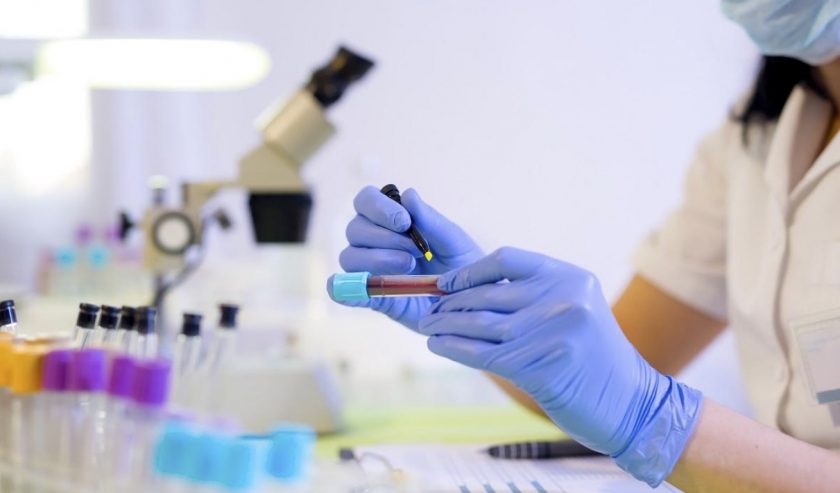Hundreds of patients in Wales playing key role in trialling revolutionary blood test which can detect 50 types of cancer

A blood test that has the potential to detect over 50 kinds of cancer is being trialled by the NHS in Wales.
The Galleri blood test, developed by the company GRAIL, aims to detect cancers earlier by looking for abnormal DNA shed from cancer cells into the blood.
Health and Care Research Wales is supporting GRAIL and the University of Oxford, to evaluate the use of a new multi-cancer early detection (MCED) test.
They have teams across NHS Wales taking part in the SYMPLIFY study, which will investigate a MCED test developed by GRAIL, known as Galleri, for patients with non-specific symptoms that may be a result of cancer.
The aim of the SYMPLIFY study is to demonstrate how the test could be used to increase cancer detection rates and simplify diagnosis.
At present, Wales will be inviting around 700 patients to take part in this study.
In total 6,000 patients from sites across England and Wales, who have been referred by their GP will have their blood samples tested with Galleri alongside their usual care, in order to validate the Galleri test.
Using revolutionary next-generation sequencing technology, Galleri has the potential to complement existing screening programmes and current tests to enhance early stage diagnosis, when cancers can be treated more successfully.
The study is one of the first to be rolled out in Wales under the Health and Care Research Wales One Site Wales approach, a streamlined way to deliver research studies across the country.
The approach is part of a wider One Wales programme of work, designed to reduce duplication and increase speed of set up and delivery of research.
Within the programme, health boards can use these approaches to ensure more people than ever are be able to access the trial through local services.
The SYMPLIFY trial is currently recruiting at 19 district hospitals, across all seven health boards in Wales including Betsi Cadwaladr University Health Board here in North Wales.
Jeffery Horton from the Vale of Glamorgan was 51 when he was diagnosed with bowel cancer.
Now in remission, he thinks the test could be “life-saving”: “Once my cancer was discovered, the tumour was removed but I also needed chemotherapy.
It wrecked my life at the time, and was a long and hard journey.
If I’d had a blood test like this when my symptoms began, my treatment could have stopped at surgery.
My wife and I saw this news today and thought it was absolutely brilliant to see a new trial like this one. I would have been elated to have been offered a such a simple test. Could this be a life-saver? Absolutely!”
Professor Dean Harris, who is the Principal Investigator for Wales said: “The team are thrilled to roll out this important study to health boards around the country.”
“The One Site Wales approach means that Wales is more attractive than ever for trialling revolutionary new technologies such as Galleri, which could help change the way we diagnose cancer forever.”
Dr Nicola Williams, Director of Support and Delivery at Health and Care Research Wales said: “We are incredibly proud of our research staff’s efforts in rolling out this trial on such an enormous scale.”
“We’re looking forward to playing our part and tracking its progress in the coming months.”
Professor Kieran Walshe, Director of Health and Care Research Wales said: “SYMPLIFY is a brilliant example of how Wales can work together to provide a meaningful contribution to national life-saving research.”
“Supporting new cancer diagnosis studies like this one is an essential part of our commitment to providing the best possible standard of care to the people of Wales.”
SYMPLIFY will assess how Galleri can be used to benefit patients with non-specific symptoms that may be a result of cancer.
The SYMPLIFY study is one of the UK-based clinical trials that GRAIL is supporting, from which the collective results may see the MCED technology included in routine visits with healthcare providers, such as to a GPs and other non-hospital settings.
Spotted something? Got a story? Email: [email protected]
Latest News
